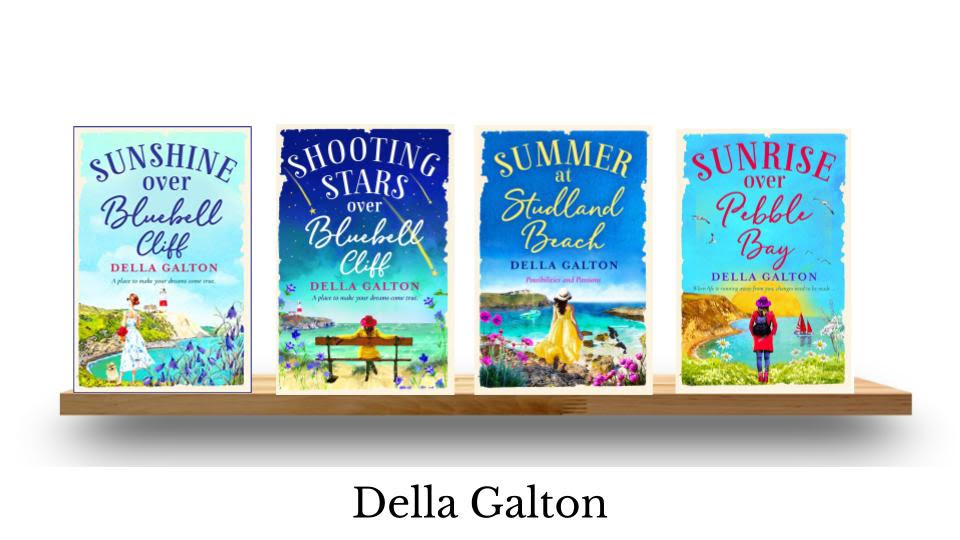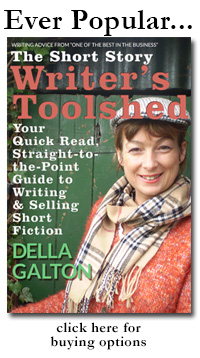 Buy now from amazon.co.uk
Buy now from amazon.co.uk
PART ONE
Chapter One: Marketing short stories
» What is the secret of selling short stories?
» Why do writers need a market?
» What are the markets?
» How to find a market
» What to do when you’ve identified your chosen market
» Who is your target reader?
» What kind of stories is she likely to be interested in?
» What is house style?
» When should you submit seasonal stories?
» How to increase your chances of success
Chapter Two: Finding ideas and inspiration
» Where to get ideas
» How to develop them
» What’s the difference between an idea and a plot?
» Working straight from the subconscious
» Using the same idea twice or more
» How to inspire yourself
» Tips from the experts
Chapter Three: Turning your original idea into a workable plot line
» What’s a plot?†
» What’s not a plot?
» Working it out in advance
» The ‘plot as you go’ method
» Summary of the plot as you go’ method
» What to do to if your plot doesn’t work
» How to stick to the point
» Tips from the experts
Chapter Four: Writing effective dialogue
» What is the purpose of dialogue?
» Dialogue and characterisation
» How much should you use?
» When should you use dialect?
» Different voices
» Direct dialogue
» How to lay out dialogue
» Tips from the experts
Chapter Five: Creating believable and sympathetic characters
» How to create a sympathetic character
» Naming your characters
» How much physical description should you use?
» Using viewpoint effectively
» The difference between showing and telling
» Tips from the experts
Chapter Six: Settings
» What’s so important about settings?
» How do I get setting into a short story?
» How much is too much?
» Tips from the experts
Chapter Seven: Flashback and Time Span
» What is a good time span for a short story?
» What’s flashback?
» Does that mean I’m restricted to describing the events of afternoon?†
» Is it OK to use flashback in short stories?
» What are the pitfalls?
» Tips from the experts
Chapter Eight: Using a Theme
» What is a theme?
» Is it necessary?
» How does it differ from a universal truth?
» Overused themes
» Finding a new theme
» Tips from the experts
Chapter Nine: Structure and Pace
» Why should you use a structure?
» What kind of structures are there?
» More unusual structures
» What is pace?
» How do you create pace?
» Tips from the experts
Chapter Ten: Putting it all Together
» Why do I need an attention grabbing opening paragraph?
» How do I write good opening paragraphs?
» How do I know if my opening paragraph works?
» How to maintain your middle
» How to write the perfect ending
» What to do if your ending falls flat
» Tips from the experts
Chapter Eleven: Cutting and Editing
» Murder your darlings:
» Are edits essential?
» How many drafts should I write?
» Is it possible to over edit?
» What should I look for when I edit?
» What about adverbs?
» Why are clichÈs a problem?
» Should all clichÈs be removed?
» Tips from the experts
Chapter Twelve: Titles
» What should a title do?
» What should a title not do?
» Are there any short cuts to finding a good title?
» Tips from the experts
Chapter Thirteen: Incorporating Life into Fiction
» Using dialogue from life
» Using real people as characters
» What if someone recognises themselves?
» Can I use the bad bits of someone’s personality?
» Using real events as plots
» Using emotions
» Using real places
» Tips from the experts
PART TWO
Chapter Fourteen: Writing Twist Endings
» What is a twist ending story?
» What works and what doesn’t?
» Types of twists
» How to write an effective twist
» How to check if your twist ending works
» Tips from the experts
Chapter Fifteen: Writing with humour
» What is humour?
» Humour for the ear
» Humour for the eye
» How to be funny without being offensive
» Are there any taboo subjects?
» What kind of humour never fails?
» What are the markets for humour?
» Tips from the experts
Chapter Sixteen: Writing with emotion
» What’s the difference between emotion and sentimentality?
» How do I know if I’ve gone too far?
» How to touch your reader – guaranteed
» Tips from the experts
Chapter Seventeen: Writing the Competition/Literary Short Story
» What are the differences?
» What is a literary short story?
» What about competitions that aren’t billed as literary?
» What can I do to improve my chances in a competition?
» Tips from the experts
Chapter Eighteen: Writing Ghost Stories
» Are there rules for writing ghost stories?
» Try something different
» Rational explanations
» Tips from the experts
Chapter Nineteen: Writing Crime Stories
» What types of crime story are there?
» How do I construct a crime story?
» What are the markets for crime?
» Are there any taboos?
» Tips from the experts
Chapter Twenty: Writing Erotic Short Stories
» What’s the difference between an erotic story and an ordinary one?
» How important are the senses?
» What about plot and storyline?
» Are there any taboos?
» Is writing erotica more difficult?
» What sort of language should I use?
» Should I mention contraception?
» Should I use a pseudonym?
» How important is market research?
» What markets are there?
» Tips from the experts
Chapter Twenty-One: Men Writing for Women’s Magazines
» What are the best short story markets for men?
» Can men successfully write for women’s magazines?
» Will I need a female pseudonym?
» Aren’t women’s magazines all knitting and romance?
» What are the markets other than magazines?
» Tips from the experts
PART THREE
Chapter Twenty-Two: Working with Editors
» Is it necessary to write covering letters?
» A good reason to write a covering letter
» Another good reason to write a covering letter
» Can I submit by email?
» How to present your work
» How soon can I chase up a manuscript?
» Keeping track of your stories
» Working with editors overseas
» Tips from the experts
Chapter Twenty-Three: Tax and Record Keeping
» Must I pay tax on my writing income?
» What expenses can I claim?
» What records do I need to keep for the taxman?
» Must I pay tax on competition winnings?
Chapter Twenty-Four: How to Deal with Rejection
» Reasons for rejection
» How can I fix these problems?
» When to rewrite
» Tips on keeping motivated
» Competition rejections†
» Tips from the experts
Chapter Twenty-Five: Excuses not to write and what to do about them
» I haven’t got time
» I can’t think of anything to write
» There are too many distractions
» I’m too tired
» Everything else (in the world) is more interesting than writing
» It’s too much like hard work
» Tips from the experts
Chapter Twenty-Six: More Tips from the Experts on Just About Everything




